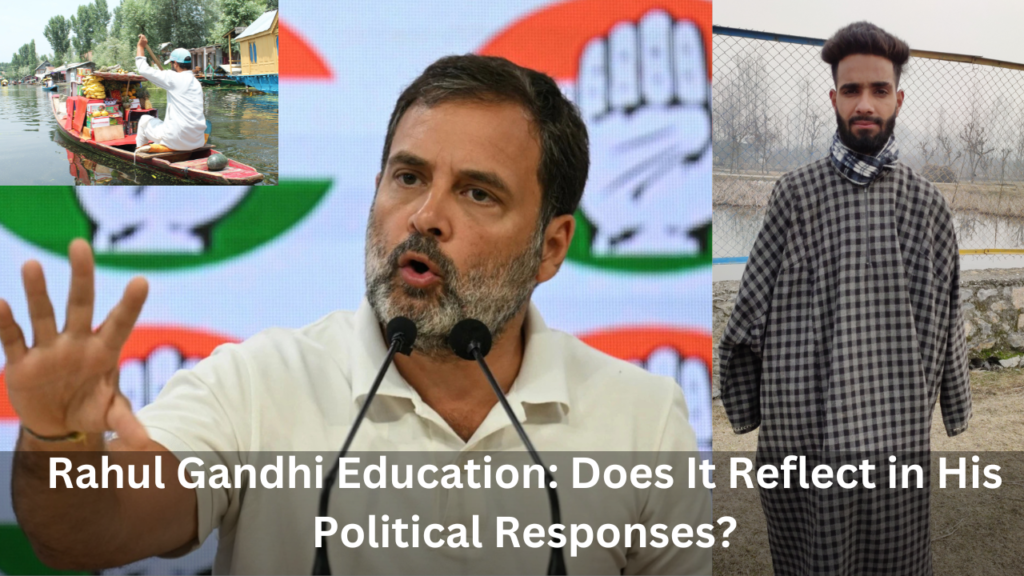Rahul Gandhi, the prominent leader of the Indian National Congress, has been a subject of political discussions for years. His educational background and political approach often come under scrutiny, especially when he interacts with the public. Recently, during his visit to Kashmir, he engaged with the local people, and one interaction particularly stood out, raising questions about his understanding of political issues and his ability to connect with the masses.
During his visit, a Muslim journalist from Kashmir posed a direct question regarding Article 370 and 35A, which were revoked by the Modi government in August 2019. The journalist asked whether, if Rahul Gandhi came to power, he would restore Article 370. Surprisingly, Rahul Gandhi struggled to understand the question in Hindi and had to rely on his advisor, Jairam Ramesh, for clarification. Instead of addressing the journalist’s inquiry directly, his response was diverted towards protecting the rights of local people and ensuring employment opportunities in Kashmir.

This moment sparked debates on Rahul Gandhi’s education and political awareness. Many questioned how a national leader, who has received education from prestigious institutions like Harvard and Cambridge, could fail to comprehend a simple Hindi question. Critics argue that while Rahul Gandhi’s education may be elite, it does not necessarily translate into strong political acumen or leadership skills. His tendency to deliver speeches in English in regions where the majority of the population speaks Hindi or Urdu further distances him from the grassroots level.
The Kashmir visit also highlighted how certain political narratives are shaped. The journalist’s question was straightforward—whether Rahul Gandhi would reinstate Article 370. Instead of giving a clear answer, the response was rephrased by his team, seemingly to avoid a direct stance. This incident fueled concerns over Rahul Gandhi’s political maturity and whether his academic qualifications truly reflect his ability to govern effectively.
In Indian politics, leadership is not just about having an elite education but about connecting with the people, understanding their issues, and making decisive policies. Rahul Gandhi’s education has always been a topic of discussion, but incidents like this show that education alone is not enough; political clarity and strong leadership qualities are equally important. As he continues to engage with the public, his ability to effectively communicate, understand complex issues, and take firm stands will determine his future in Indian politics.


Related Posts
JD Vance, Everything You Need to Know About the Author, Politician, and Entrepreneur.
Kumbh Mela 2025: Gadgets That Will Make Your Journey Easier